
German director Christian Petzold specializes in stories of trapped people trying to think their way out of grim predicaments. The wrenching, suspenseful Cold War tale Barbara; the psychological vengeance thriller Wolfsburg; and Jerichow, a tense reimagining of The Postman Always Rings Twice, number among his dense, ambitious, and gripping works.
Lately a laxer touch has loosen Petzold’s once vigorous grasp. Phoenix brought baroque, Hitchockian woo-woo to a story of surgery and post-Holocaust mistaken identity; the war metaphor Transit suffered from a wan, wistful lack of grit. His most recent film, Undine, strains to mate a romantic story of payback with the legend of an ill-fated water sprite. It contains some of the filmmaker’s recent weaker elements, but the good news is that you can relax and forget about figuring out the complicated and unnecessary Lorelei metaphor and enjoy Petzold’s sure-handed twists, beautifully mounted frames, and ever-present, if sometimes misapplied, intelligence.
Undine opens in one of Berlin’s shady courtyard cafés, where a tense breakup is taking place. The young woman being dumped, Anna (Paula Beer, a younger, less cerebral and tense version of longtime Petzold muse Nina Hoss) informs Johannes (Jacob Matschenz), the man spurning her for another woman, that she’ll have to kill him. This is more than the fury of a woman scorned—her steely, cold concentration reveals she is dead serious. She asks Johannes to wait for her there while she retreats to her job as possibly the world’s most informed museum tour guide, giving a complex speech about the development of contemporary Berlin against a background of enormous architectural models. When she comes back to the outdoor café, her former boyfriend is nowhere to be seen.
But there’s a new fellow eagerly pursuing her, a puppy-eyed salvage diver named Christoph (Transit’s River Phoenix lookalike Franz Rogowski), enchanted by the brilliance of Anna’s detailed presentation on the city’s history. These two come together when an aquarium in the café spectacularly and inexplicably explodes in a slow-mo shower of water and broken glass, knocking them both to the floor in a sort of bizarre, drenched rapture. It sets the tone for a relationship in which the innocent, worshipful Christoph will save Anna as she nears a breaking point.
Dreamlike episodes, interludes of young love, and close calls with death await. There isn’t much depth to Anna and Christoph’s affair—Petzold conceives of Christoph as a sort of noble simpleton—but you feel its passion nevertheless. Scenes of the two swimming and diving underwater transport us to an undulating world far from Berlin’s boxy functionality. And the director returns to satisfying, icy Petzoldian form with a nighttime act of revenge played out (where else?) in a swimming pool.
Atmospheric, cool, and cool-looking, Undine doesn’t make much sense. But it doesn’t really have to. There’s enough edge, style, and tension to keep us in the moment, even if the film’s entire structure holds back from quite cohering into anything strictly meaningful.

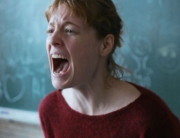
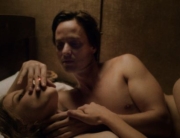
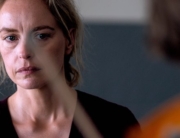
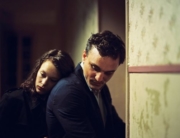
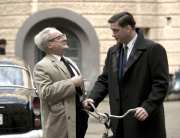
Leave A Comment